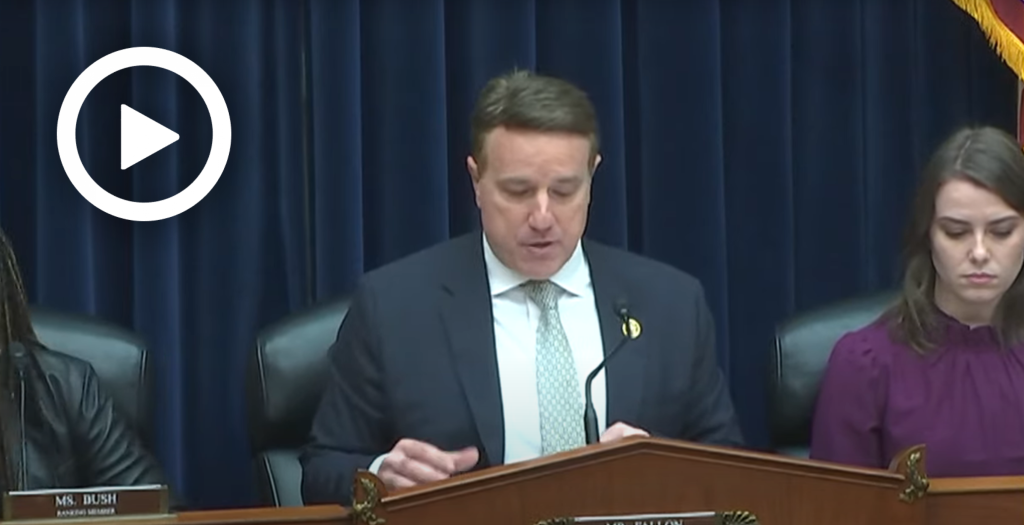Fallon: We Must Take Steps Now to Build Out America’s Nuclear Power Capacity
WASHINGTON—Subcommittee on Economic Growth, Energy Policy, and Regulatory Affairs Chairman Pat Fallon (R-Texas.) today opened a hearing titled “The Next Generation: Empowering American Nuclear Energy” by outlining how ensuring the United States is on track to meet the energy needs of tomorrow is crucial to our national security.
Below are Subcommittee Chairman Fallon’s remarks as prepared for delivery.
Today’s hearing is an opportunity to provide oversight of a critical element of our national energy mix—the nuclear power sector.
The U.S. is the world’s leading producer of nuclear energy.
Nuclear power plants generate about 20 percent of our nation’s electricity and are the most reliable source of power generation.
It’s also an extremely clean form of energy production, producing zero carbon emissions.
In fact, nuclear power is responsible for more than 70 percent of U.S. non-greenhouse-gas-emitting power generation.
Additionally, nuclear fuel is incredibly efficient. A single nuclear reactor can produce as much power as over 3 million solar panels or 431 wind turbines.
Over the past several decades, American innovators have made significant strides in developing new technology to meet our evolving energy needs.
When most people think of nuclear power, they think of large-scale cooling towers and massive industrial projects that can take decades and billions of dollars to complete.
These traditional reactor designs contribute massive amounts of energy for homes, businesses, and manufacturers.
But what many people don’t know is that the future of nuclear power can take many forms.
Small modular reactors and microreactors could provide energy to isolated communities, military installations, and critical infrastructure.
American innovation has, as it often does, led the way for many of these advancements.
But similar to other emerging and evolving technologies, the federal regulatory system has been slow to adjust.
As a result, industry is facing burdensome and expensive bureaucratic hurdles.
Meanwhile, older nuclear power plants are at risk of closure, potentially jeopardizing grid reliability, and domestic energy security.
That is why we have asked representatives from three of the leading federal entities regulating and overseeing our nation’s energy sector to testify today.
The Department of Energy, the Nuclear Regulatory Commission, and the Federal Energy Regulatory Commission each have important roles to play in ensuring our country’s energy infrastructure, stability, and security.
These regulators are here today to answer important questions:
Are we creating an environment where U.S. innovators can succeed and thrive in providing cost-effective solutions to our energy challenges?
Are there areas of regulation that are outdated or duplicative and in need of reform to streamline our national approach to deploying nuclear power?
Are we on track to meet the energy needs of tomorrow with the technology and regulatory framework that we have in place today?
As we dive into each of these questions, we must also pay close attention to the nuclear fuel supply chain.
China and Russia collectively control 60 percent of the globe’s uranium enrichment capacity, and the U.S. imports a quarter of its low-enriched uranium—the fuel needed to power America’s commercial nuclear reactor fleet—from Russia.
This means that one out of every 20 American homes is currently powered by Russian uranium.
Recent funding initiatives and legislation like H.R. 1042, the Prohibiting Russian Uranium Imports Act, which passed the House last month, endeavor to jumpstart American development and decrease our reliance on adversarial nations.
When it comes to the nuclear fuel supply chain, energy security truly is national security.
I look forward to a thoughtful discussion on the state of American nuclear power and where we can come together to ensure future success.
I thank each of the witnesses for being here today, and with that I yield to Ranking Member Bush for her opening statement.
